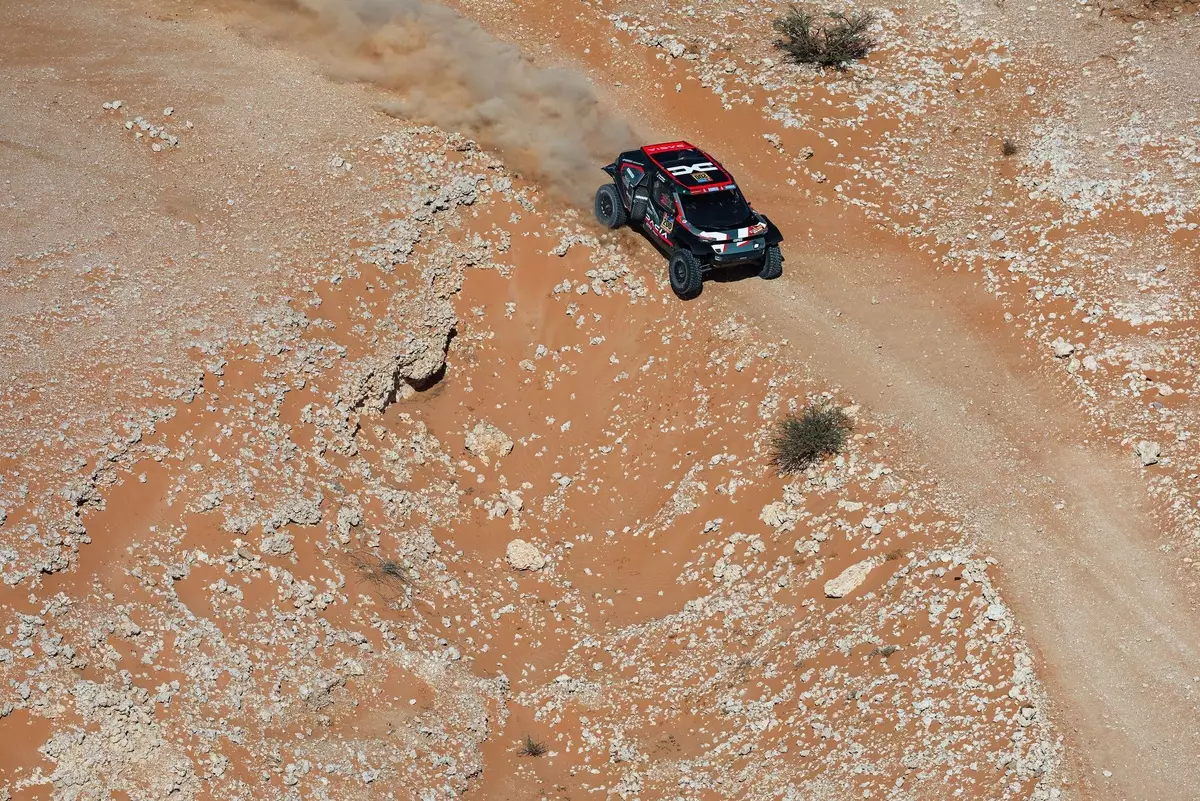The Dakar Rally, known for its grueling terrain and the pressure it puts on participants, has witnessed its fair share of triumphs and tribulations. One of the most prominent figures in this domain, Nasser Al-Attiyah, recently faced an unexpected setback that encapsulates the intense competition and the stress that comes with it. After a navigation error on Stage 10, Al-Attiyah expressed his disappointment and frustration, leaving him with a sense of unease as he navigates the complexities of the remaining stages. This incident serves as a reminder of the fine line between success and failure in the world of rally racing.
During Stage 10, the stage set for the competitors to showcase their skills in Saudi Arabia’s harsh Empty Quarter, Al-Attiyah and his co-driver Edouard Boulanger found themselves at a significant disadvantage. A navigational blunder mere kilometers into the race not only cost them time but also deeply affected Al-Attiyah’s confidence. The Dacia driver, accustomed to leading the pack, now faced a daunting situation: a navigation error that led to a loss of 13 minutes early on. In a sport where every second counts and where stages can be deceptively short—as was the case with the 120km stretch—such errors can be catastrophic.
Al-Attiyah’s reaction speaks volumes about the emotional weight of competitive sports, particularly in events as unforgiving as the Dakar Rally. He stated, “From the start we got lost,” demonstrating that the frustration of getting lost in the dunes was compounded by his strong aspirations for victory. The emotional burden was palpable as he described the incident as “the most disappointing day of my life.” This encapsulates a universal truth in competitive sport: even seasoned professionals can be brought low by a moment of oversight. It’s a stark reminder that the pressure to perform can be overwhelming, especially when previous victories create a heightened standard of expectation.
Co-driver Boulanger took full accountability for the navigation mistake, illustrating an essential aspect of teamwork in rally racing. He clarified how a simple oversight—”jumping a line” in the roadbook—led to a three-kilometer detour. This declaration of responsibility is critical in a sport where teamwork can determine success or failure. Boulanger’s candor about the mistake reflects a broader culture of accountability in racing, where every team member plays a pivotal role in navigating the challenges of the racecourse. His admission shows the intricate balance of teamwork and trust that is indispensable in the high-pressure environment of rally racing.
With only two stages left in the Dakar 2025, Al-Attiyah’s prospects for clinching a sixth victory appear grim. Trailing by 30 minutes from the current leader, Henk Lategan, the possibility of regaining his footing in the race seems daunting. Al-Attiyah himself acknowledged the challenges ahead, stating, “I don’t know, we’ll see what we can do tomorrow.” This statement highlights a shift in mindset as he grapples with the reality of a significant deficit—the kind that not only tests a driver’s skill but also his mental resilience.
Nasser Al-Attiyah’s experience during this year’s Dakar Rally underscores a compelling narrative of ambition, challenge, and the stresses inherent in high-stakes competition. His struggle resonates with many athletes who encounter unexpected hurdles on their journey to success. As the race progresses, fans and competitors alike will watch closely to see if Al-Attiyah can overcome this formidable setback. The question remains whether he can harness his vast experience and talent to salvage something from this otherwise disappointing chapter in his illustrious career. Whether he emerges victorious or not, his experiences serve to remind us of the vital interplay between ambition and humility in the ever-competitive arena of motorsports.

